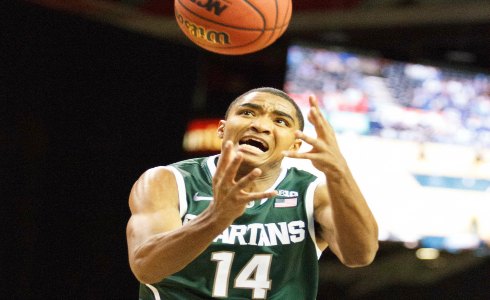
If you tuned into the start of the 1963 NCAA championship between little Loyola of Chicago and mighty Cincinnati, it looked like few, if any, of the college basketball games you’d ever watched before.
Seven of the 10 starters from the two teams were black.
Fifty years later, one of the more revolutionary contests in sports has largely faded from memory. Ask any player at this year’s Final Four about the game that changed the color of college basketball and they’ll likely cite the 1966 finale, when tiny Texas Western, with its five black starters, upset all-white Kentucky. That’s because of the popularity of the book, ”Glory Road,” and even moreso the movie released in 2006, which detailed the exploits of Texas Western and its coach, the late Don Haskins.
But if anything, the mood in the country was much more racially charged in 1963. That atmosphere provides the backdrop for ”Ramblers,” a new book in which author Michael Lenehan pulls together all the disparate threads that produced Loyola’s serendipitous championship run.
The previous fall, riots erupted at the University of Mississippi when a lone black man enrolled there, and the unwritten rule among college coaches was you could play one black on the road, two at home and three if you were way behind.
”When I tell my kids those stories,” said Ron Miller, who became Loyola’s fourth black starter at the end of the 1962 season, ”they think I’m exaggerating.
”The night we played, none of us had a sense of what it meant. We’d run across some ugly scenes, playing in the South, but I grew up in New York City watching St. John’s and NYU, so I’d seen black players before and never thought much about it. But not long after we won, I went home for Easter break and so many people came by to congratulate me, my mom just left the door open. Then I went over to my cousin’s store. He said, ‘I’m really proud of you guys. I never thought I’d see so many black faces on a court all at the same time.’
”That was the first time I realized it was more than just another game, more even than a championship game. It’s nice to be able to look back now, from a distance, and think we helped a little, maybe gave some people an opportunity that wasn’t there prior to that.”
